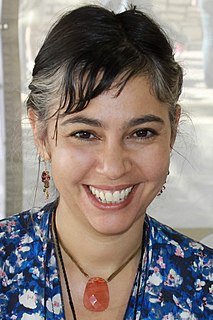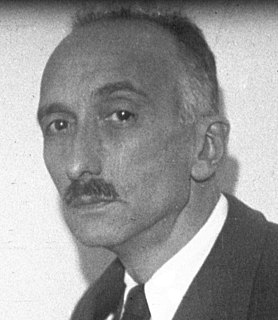A Quote by Emile M. Cioran
What necessity impels a writer who has produced fifty books to write still one more? Why this proliferation, this fear of being forgotten, this debased coquetry?
Related Quotes
Being pregnant taught me how to be a better writer. It was a lesson in negative capability and surrendering to necessity. Suddenly, my body instinctually yielded to the needs of this growing being, and I had no choice but to embrace what was happening and all that lay ahead, even if I was afraid and uncertain. So, while being a parent has made writing more challenging, it has also made being a writer more certain. There's no room to procrastinate; there is to time for fear.
Whatever hardships there have been in my life I still live in a very privileged position. Fear is not knowing where your next meal is coming from. Fear is seeing a child get hurt. Fear is watching someone you love waste away. Fear is knowing you are going to die yourself. But there's no fear in what I do. I write books.
The most difficult thing about living as a writer is precisely 'having to write.' Pretending to be a writer is easy. Living freely, reading many books, going on frequent trips, cultivating minor eccentricities... but genuinely being a writer is difficult, because you have to write something that will convince both yourself and readers.
The people who review my books, generally, are kind of youngish culture writers who aspire to write books, or write opinion pieces about what they think of Neil Young, or why they quit watching ER or whatever. And because of that, I think there's a lot of people who write about my books with the premise of, "Why this guy? Why not me?"
One wouldn't want to say that what makes a good writer is the number of books that the writer wrote because you could write a whole number of bad books. Books that don't work, mediocre books, or there's a whole bunch of people in the pulp tradition who have done that. They just wrote... and actually they didn't write a whole bunch of books, they just wrote one book many times.
But we should ask the question: Why should a writer be more than a writer? Why should a writer be a guru? Why are we supposed to be psychiatrists? Isn't it enough to write and tell the truth? It's not like telling the truth is common. Writers are the earthworms of society. We aerate the soil. That's enough.
The most important thing for a writer to do is to write. It really doesn't matter what you write as long as you are able to write fluidly, very quickly, very effortlessly. It needs to become not second nature but really first nature to you. And read; you need to read and you need to read excellent books and then some bad books. Not as many bad books, but some bad books, so that you can see what both look like and why both are what they are.
When you decide 'to be a writer,' you don't have the faintest idea of what the work is like. When you begin, you write spontaneously out of your limited experience of both the unwritten world and the written world. You're full of naïve exuberance. 'I am a writer!' Rather like the excitement of 'I have a lover!' But working at it nearly every day for fifty years ? whether it is being the writer or being the lover ? turns out to be an extremely taxing job and hardly the pleasantest of human activities.
Productivity is a relative matter. And it's really insignificant: What is ultimately important is a writer's strongest books. It may be the case that we all must write many books in order to achieve a few lasting ones - just as a young writer or poet might have to write hundreds of poems before writing his first significant one.
I don't buy into the idea that an Irish writer should write about Ireland, or a gay writer should write about being gay. But when I found the right story, I saw it as an opportunity to write about being a teenager and being gay. Most people, whether you're gay or straight or whatever, have experienced that relationship where one person is much more interested than the other.








































